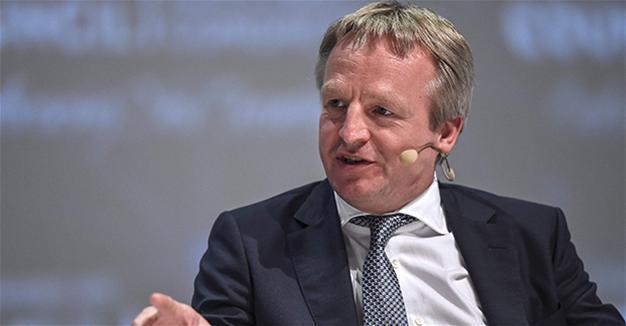Shell wants to supply more natural gas to Turkey, says senior executive
Merve Erdil - ISTANBUL

AFP photo
Shell wants to supply Turkey with more liquefied natural gas (LNG), grow in the natural gas market and expand its cooperation with Turkey as the country has the potential to become a gas hub, according to a senior company executive.
“We want to increase our investments in Turkey and, in particular, to be a bigger player in the natural gas market. Currently, we are one of the companies that imports natural gas to Turkey and engages in the domestic natural gas trade. We supply BOTAŞ [Petroleum Pipeline Corporation] with LNG; as such, we foster resource diversity and contribute to the strengthening of natural gas supply security in Turkey. We want to provide more LNG for Turkey in the period to come,” said Shell Global Vice President Maarten Wetselaar, on the sidelines of the World Energy Congress in Istanbul.
When asked about the resources they use to supply Turkey with natural gas, Wetselaar said: “More and more countries meet a significant share of their natural gas needs through LNG. There are numerous countries that comprise the market for LNG. It thus becomes possible to secure resource diversity without assuming political risk. Today, one of every five LNG cargos on the global market belongs to Shell. Therefore, we are a very big player in this market with diverse supply resources.”
The United States, Peru, Trinidad and Tobago, Equatorial Guinea, Nigeria, Oman and Qatar are some of the other players, he said.
Turkey as a ‘gas hub’
Asserting that natural gas and LNG price gaps across the regions would narrow in the future, he said: “The number of pipelines will also increase. Hubs will develop in various regions across the world. For instance, in North America, Europe, Asia… Turkey may be one such hub.”
Wetselaar said Turkey needed to have a high volume market coupled with domestic depth and supply diversity in order to become a natural gas trade hub.
“Turkey is a high volume market given its projected population increase from 80 million to 100 million, as well as its escalating natural gas demand. The country may increase supply security and depth by diversifying supply channels. For instance, you may purchase natural gas from Russia or Azerbaijan, but LNG will reach your market with different price options. You must have a transparent, free, and less regulated market open to everyone. Then you can initiate arbitrage operations for natural gas prices,” Westalaar said.
Gas prices
Wetselaar also shared his predictions on global natural gas prices. “We cannot talk about actual global natural gas prices yet. Natural gas prices vary by region. Prices are different in North America, South America, Europe, Africa and Asia. However, in the last couple of years, natural gas prices have correlated with oil prices. Both natural gas and oil prices have dropped. The burning question here is whether gas prices will increase if oil prices escalate,” he said.
